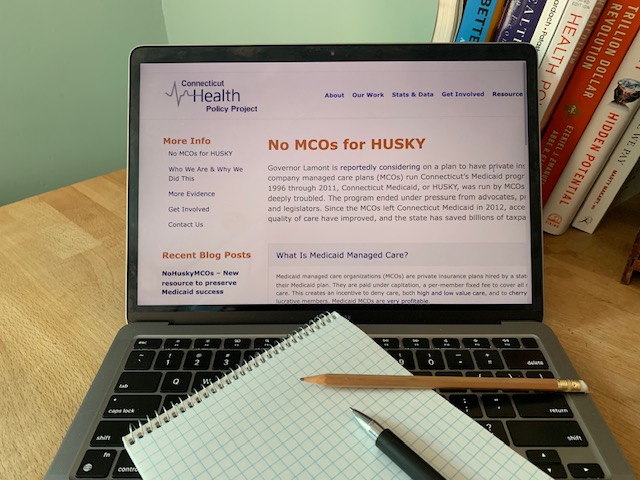disabilities
CT ranks best in the nation for the lowest prevalence of mental illness, but worse in access to care
Overall, Connecticut ranks second in the nation in mental health wellbeing, behind only Massachusetts, according to Mental Health America’s 2024 rankings. We benefit from having the lowest prevalence of mental illness in the nation. But still one in nine (11%) Connecticut youth and 4% of adults have serious thoughts of suicide. Connecticut has lots of…
Read MoreReport estimates CT will be short 5,700 healthcare providers by 2028, but far better than other states
Download the analysis A new report from Mercer estimates shortages, and surpluses, in critical health care provider categories in 2028 by state. There is wide variation between states in demand. In good news – Connecticut’s projected shortages are limited and fairly modest. New York, however, is in serious trouble. Across five critical categories, the researchers…
Read MoreCT Mirror Opinion: Keep MCOs out of HUSKY health care
“In the past, managed care organizations were a disaster for Connecticut’s Medicaid program“ Former legislator, Medicaid provider, member of Medicaid’s state oversight council, and champion for member access to care who lived through the MCO years, Vickie Nardello says, “ I strongly disagree with Gov. Ned Lamont’s plan to bring managed care organizations (MCOs) back…
Read MoreHUSKY evaluation call is broad; Includes MCOs but is not biased
Updated August 15, 2024 with Questions and Answers to DSS Last month, DSS released their promised request for quotes (RFQ) from current contractors to evaluate Connecticut’s Medicaid program. (Questions from potential RFQ applicants and DSS’s answers are here.) The RFQ includes important broad priorities that are shared by advocates and other stakeholders, including an evidence basis…
Read MoreDSS gets input for Medicaid landscape survey
At last week’s MAPOC meeting, DSS announced they will be hiring a consultant to survey the Medicaid landscape assessing options for improvement, including MCOs. Advocates, legislators, and other stakeholders have publicly registered their opposition to returning the failed MCO model to our successful HUSKY program. At the meeting DSS requested input on the criteria consultants…
Read More43 sign letter urging Governor not to return MCOs to HUSKY
A letter signed by 27 organizations and 16 individuals was sent to Governor Lamont urging him not to return Connecticut’s successful Medicaid/HUSKY program to the failed managed care (MCO) model. The signers cited HUSKY’s progress leading the nation in cost control, quality, innovation, and access to care since MCOs left our program in 2012. Read…
Read MorenoHuskyMCOs webinar for advocates online
A recording and slides from yesterdays’ noHuskyMCOs webinar for advocates is online. The webinar covered – Questions included — If your group would like a presentation on noHuskyMCOs, email andrews@cthealthpolicy.org.
Read MoreAnalysis: Why most other states use Medicaid MCOs and why CT doesn’t
A question has been posed to opponents of MCOs in Connecticut’s Medicaid program. Under the Rowland administration, Connecticut started using Medicaid MCOs, but we removed them in 2012 because they weren’t performing. Advocates are strongly opposed to using MCOs in HUSKY. But if they’re so terrible, why do 40 other states use MCOs to run…
Read MoreCT Mirror Viewpoint: Husky MCOs would harm access to mental health care
A new CT Mirror Viewpoint from a HUSKY mental health provider describes why the Governor’s idea to bring managed care back would drive more providers from the program. Demand for mental health care has never been higher and is a serious concern for HUSKY. Donna Nicolino is a trauma specialist participating in both Connecticut’s non-MCO…
Read MoreBook Club: Risky Business—Why Insurance Markets Fail And What to Do About It
I thought I knew a lot about how insurance markets work (and don’t), but I learned more than I expected from Risky Business—Why Insurance Markets Fail And What to Do About It by Liran Einav, Amy Finkelstein, and Ray Fishman. Adverse selection (commonly called cherry picking) is a double-edged problem. I knew about insurers’ schemes…
Read More








